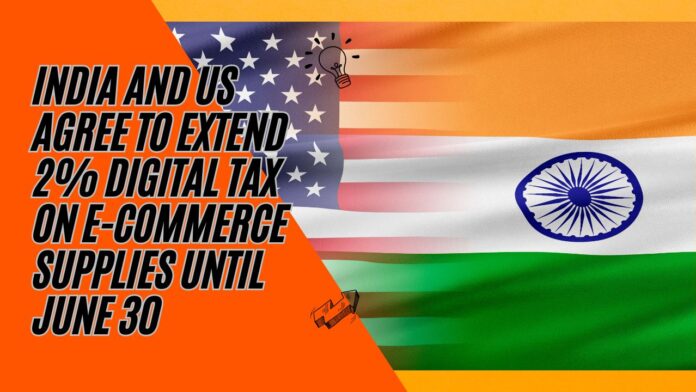The Ministry of Finance has announced that India and the United States have agreed to extend the 2% digital tax on e-commerce supplies until June 30, 2024. This move ensures that American digital companies operating in India will continue to be subject to the tax during this period.
The decision stems from a previous agreement reached in November 2021, allowing India to impose a 2% levy until March 31, 2024, or until the implementation of Pillar 1 of the OECD agreement on taxing multinationals and cross-border digital transactions. The extension to June 30, 2024, aims to maintain consistency until further progress is made on the international tax framework.
Under the agreement, both countries will maintain close communication to ensure mutual understanding and address any issues through constructive dialogue. This collaborative approach underscores efforts to resolve global tax challenges and ensure fair taxation in the digital economy.
In October 2021, India, the US, and other members of the OECD/G20 Inclusive Framework agreed on a two-pillar solution to address these tax challenges globally. The framework was initially effective from April 1, 2022, until the implementation of Pillar One or March 31, 2024, whichever came first, as outlined in public statements.
Despite efforts to finalize the text of the Pillar 1 multilateral convention by March 2024, aiming for a signing ceremony by June 2024, consensus on the agreement remains pending.
“The decision to extend the validity of the agreement reflected in the November 24 Statements until June 30, 2024, underscores our commitment to international tax cooperation,” stated the Ministry of Finance.
The Equalisation Levy, commonly known as the “Google Tax,” was introduced in India in 2016 to tax digital transactions, specifically targeting income earned by foreign e-commerce companies from India. It focuses on business-to-business transactions and is applied to non-resident service providers.
The levy applies when payments exceeding INR 1 Lakh in a financial year are made to these providers, aiming to bring them under the Indian tax regime. It is withheld at the time of payment by the service recipient and is designed to ensure fair taxation in the digital economy.
In response to the levy, companies like Google have passed on the tax to clients whose advertisements were visible in India. The implementation of the equalisation levy has varied impacts across sectors, with some companies adjusting pricing strategies to maintain competitiveness in the Indian market.
The extension of the digital tax underscores ongoing efforts by India and the US to navigate global tax reforms and ensure equitable taxation practices in the digital era.




